GB 8163 Steel Pipe
Standard steel pipes suitable for various industrial applications.
The GB steel pipes are made from a ingot or a solid billet through piercing, and then by hot rolling, cold rolling or cold dial.
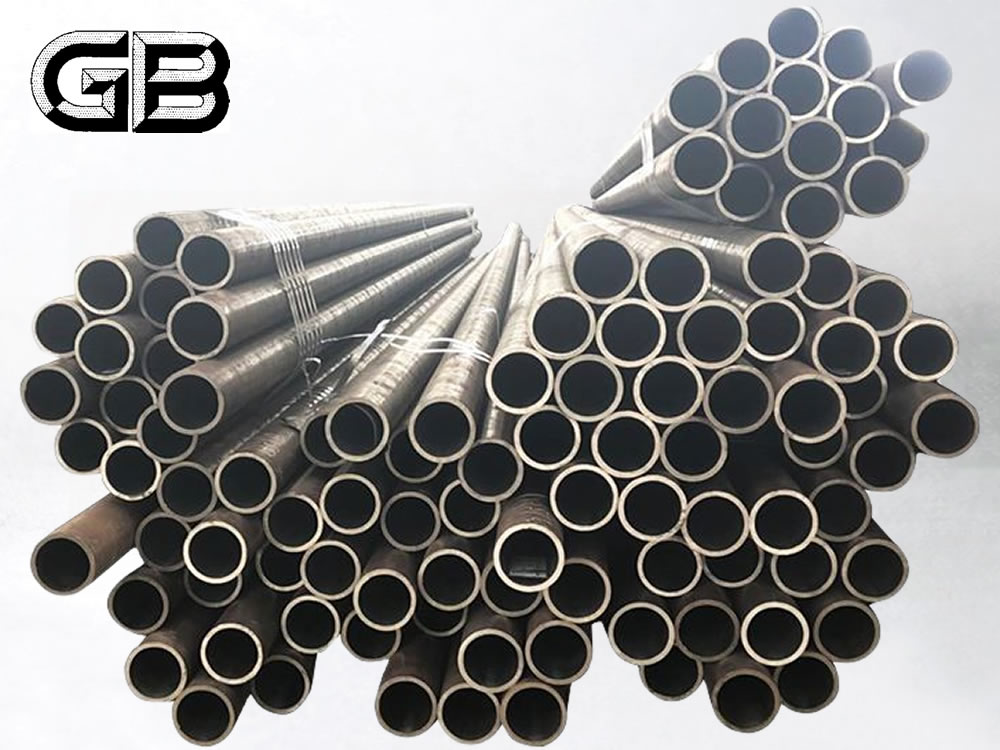
GB steel pipes are widely used in various industries due to their strength and durability. Common applications include structural support, fluid transport, boiler and pressure vessels, shipbuilding, and the petroleum and chemical industries.
GB standards for steel pipes include detailed technical requirements, such as:
GB steel pipe has an important position in China's steel pipe industry. Tubing shall be made seamless, plain or upset and coupling with high-seal connections. Coupling-free connections are possible. GB standards cover different types of seamless steel pipes, including GB/T18984, GB5310, GB3087, GB/T5312, GB/T3639, GB/T8163, and GB/T9948. These standards specify the technical requirements, dimensions, materials, and testing methods for seamless steel pipes.
GB steel pipes are manufactured in China according to specific national standards known as GB (Guobiao) standards. These standards regulate the production, quality, and testing of steel pipes to ensure their safety and reliability in various applications.
GB standards mandate strict inspection and quality control measures, including non-destructive testing, hydrostatic testing, and surface inspection.
GB standards also specify requirements for packaging, marking for traceability, and quality certificates to verify compliance with the standard's requirements.
GB steel pipes are produced in accordance with stringent national standards that ensure their quality, safety, and reliability. These standards cover a wide range of applications, from structural support to high-pressure fluid transport. Adherence to these standards is crucial for the performance and longevity of steel pipes in various industries.
For detailed specifications and requirements, it is recommended to refer to the full text of the relevant GB standards.

GB seamless steel pipes are available from various manufacturers and suppliers in China. They come in different sizes, grades, and surface finishes to meet specific project requirements.
According to incomplete statistics, there are more than 240 national standard steel pipe production enterprises and more than 250 seamless steel pipe units.
| Steel Grade | Chemistry Constitute | |||||||||
|---|---|---|---|---|---|---|---|---|---|---|
| C | Si | Mn | Cr | Ni | Mo | P | S | Ti | Cu | |
| Q195 | 0.06-0.12 | ≤0.30 | 0.25-0.50 | ≤0.3 | ≤0.3 | - | ≤0.045 | ≤0.050 | - | ≤0.30 |
| Q235 | 0.14-0.22 | ≤0.30 | 0.30-0.65 | ≤0.3 | ≤0.3 | - | ≤0.045 | ≤0.050 | - | ≤0.30 |
| Q345B | ≤0.20 | ≤0.55 | 1.00-1.60 | - | - | - | ≤0.040 | ≤0.040 | - | - |
| 10# | 0.07-0.13 | 0.07-0.37 | 0.35-0.65 | ≤0.15 | ≤0.3 | - | ≤0.035 | ≤0.035 | - | ≤0.25 |
| 20# | 0.17-0.23 | 0.07-0.37 | 0.35-0.65 | ≤0.25 | ≤0.3 | - | ≤0.035 | ≤0.035 | - | ≤0.25 |
| 35# | 0.32-0.39 | 0.07-0.37 | 0.50-0.80 | ≤0.25 | ≤0.3 | - | ≤0.035 | ≤0.035 | - | ≤0.25 |
| 45# | 0.42-0.50 | 0.07-0.37 | 0.50-0.80 | ≤0.25 | ≤0.3 | - | ≤0.035 | ≤0.035 | - | ≤0.25 |
| 20Cr | 0.18-0.24 | 0.07-0.37 | 0.50-0.80 | 0.70-1.00 | ≤0.3 | - | ≤0.035 | ≤0.035 | - | ≤0.30 |
| 40Cr | 0.37-0.44 | 0.07-0.37 | 0.50-0.80 | 0.80-1.10 | ≤0.3 | - | ≤0.035 | ≤0.035 | - | ≤0.30 |
| 20CrMo | 0.17-0.24 | 0.07-0.37 | 0.40-0.70 | 0.80-1.10 | ≤0.3 | 0.15-0.25 | ≤0.035 | ≤0.035 | - | ≤0.30 |
| 30CrMo | 0.26-0.34 | 0.07-0.37 | 0.40-0.70 | 0.80-1.10 | ≤0.3 | 0.15-0.25 | ≤0.035 | ≤0.035 | - | ≤0.30 |
| 35CrMo | 0.32-0.40 | 0.07-0.37 | 0.40-0.70 | 0.80-1.10 | ≤0.3 | 0.15-0.25 | ≤0.035 | ≤0.035 | - | ≤0.30 |
| 42CrMo | 0.38-0.45 | 0.07-0.37 | 0.50-0.80 | 0.90-1.20 | 1.00-1.40 | 0.15-0.25 | ≤0.035 | ≤0.035 | - | ≤0.30 |
| 20CrMoTi | 0.17-0.23 | 0.07-0.37 | 0.40-0.70 | 0.45-0.75 | ≤0.3 | - | ≤0.035 | ≤0.035 | - | ≤0.30 |
| 35Mn2 | 0.32-0.39 | 0.07-0.37 | 1.40-1.80 | ≤0.3 | ≤0.3 | - | ≤0.035 | ≤0.035 | - | ≤0.30 |
| 40Mn2 | 0.37-0.44 | 0.07-0.37 | 1.40-1.80 | ≤0.3 | ≤0.3 | - | ≤0.035 | ≤0.035 | - | ≤0.30 |
| 35SiMn | 0.32-0.40 | 1.10-1.40 | 1.10-1.40 | ≤0.3 | ≤0.3 | - | ≤0.035 | ≤0.035 | - | ≤0.30 |
| 15Mn | 0.12-0.16 | 0.07-0.37 | 0.70-1.00 | ≤0.25 | ≤0.3 | - | ≤0.035 | ≤0.035 | - | ≤0.25 |
| 20Mn | 0.17-0.23 | 0.07-0.37 | 0.70-1.00 | ≤0.25 | ≤0.3 | - | ≤0.035 | ≤0.035 | - | ≤0.25 |
| Deviation level | Standardized outer diameter tolerance |
|---|---|
| D1 | ±1.5%,min ±0.75 mm |
| D2 | ±1.0%。min ±0.50 mm |
| D3 | ±0.75%.min±0.30 mm |
| D4 | ±0.50%。min ±0.10 mm |

With years of expertise, we provide a diverse array of steel tube processing options. From sawing and machining tube blanks to intricate bending and upsetting operations, we actively assist you throughout your projects.
Our capabilities extend to eccentricity reduction and concentricity enhancement through turning and grinding. We excel in creating complex geometries using processes like rotary swaging and axial forming. Additionally, we offer property modifications via partial heat treatment, ensuring tailored solutions for your specific needs.
Variable wall thicknesses
Drilling / stamping / lasering
Peeling / roller burnishing
Cold forming
Cutting
Beveling
Deburring
Thread rolling / threading
Partial hardening
Turning / milling / grinding
Reducing / expanding
Swing
Seamless steel pipe is regularly used in the transportation of fluids such as water, natural gas, waste and air. It is also regularly required in many high-pressure, high-corrosive environments such as in the oil & gas, power generation and pharmaceutical industries. Some common uses of seamless pipes include:
Chemical composition inspection, mechanical properties test(tensile strength,yield strength, elongation, flaring, flattening, bending, hardness, impact test), surface and dimension test,no-destructive test, hydrostatic test.
identification of the chemical composition of the metal used to manufacture the fitting. Uses PMI sensors, including X-ray fluorescence or optical emission spectrometry.
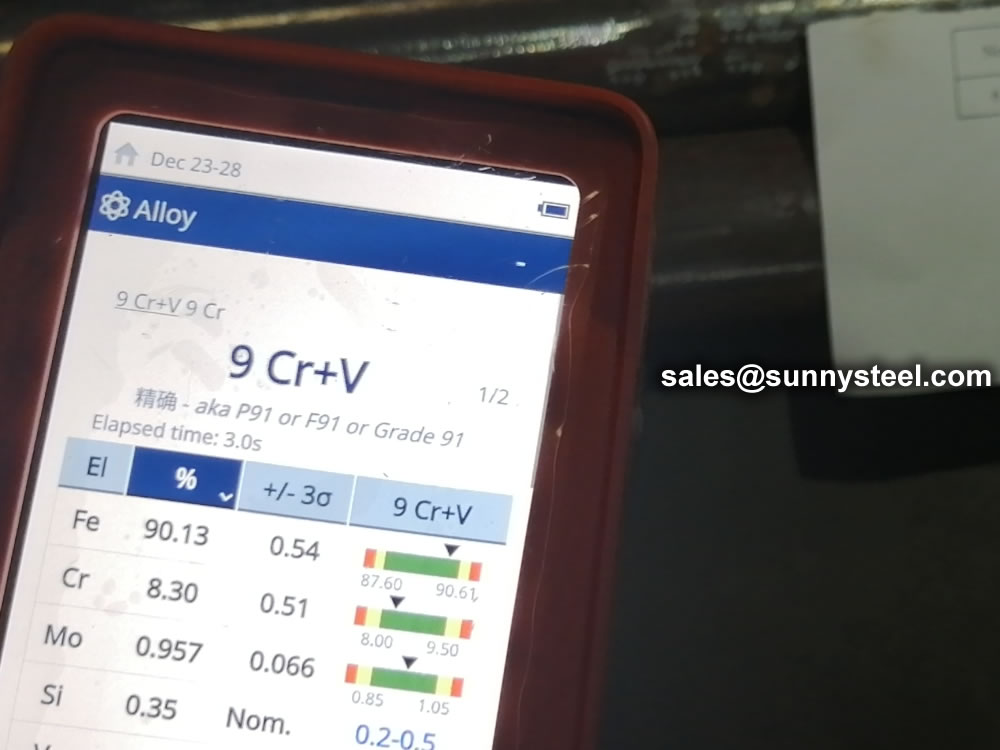
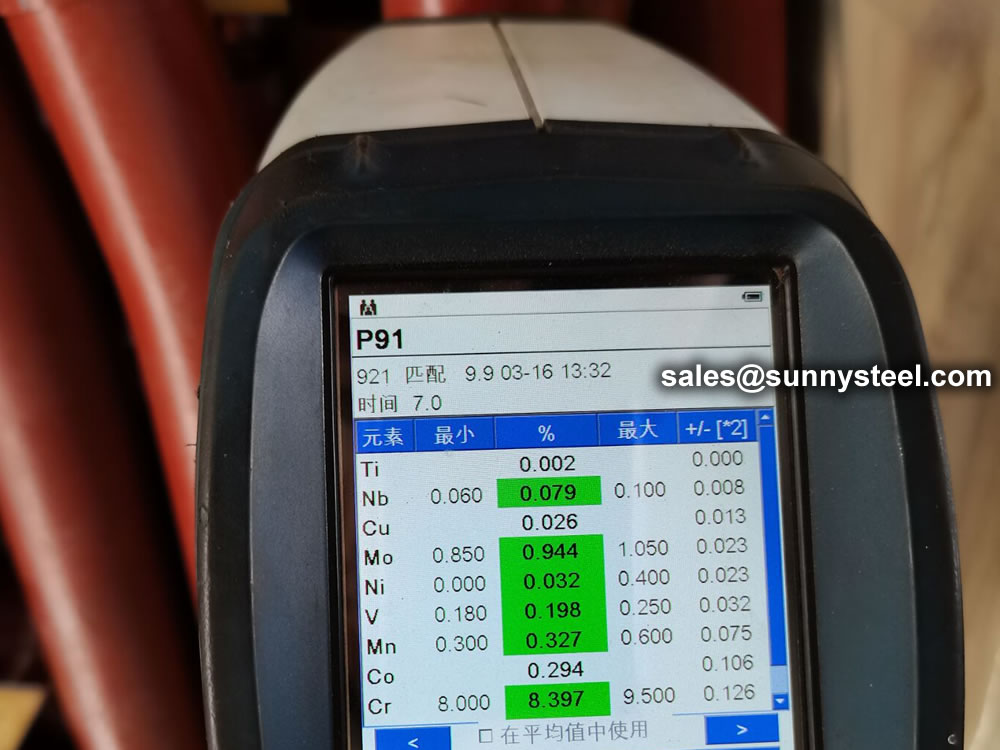
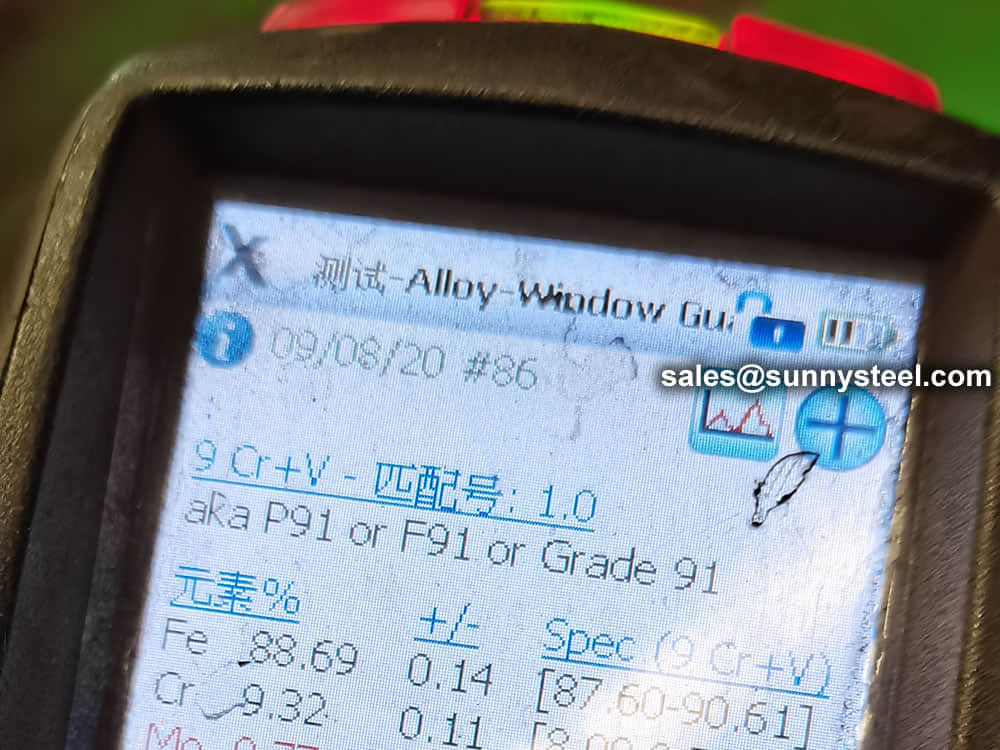
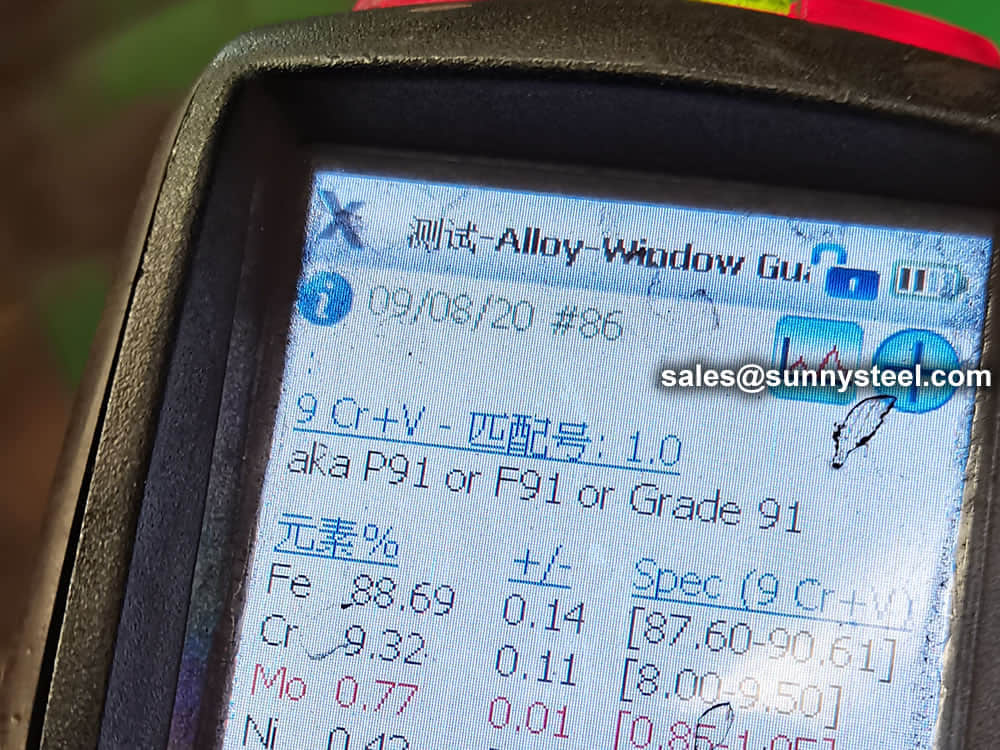
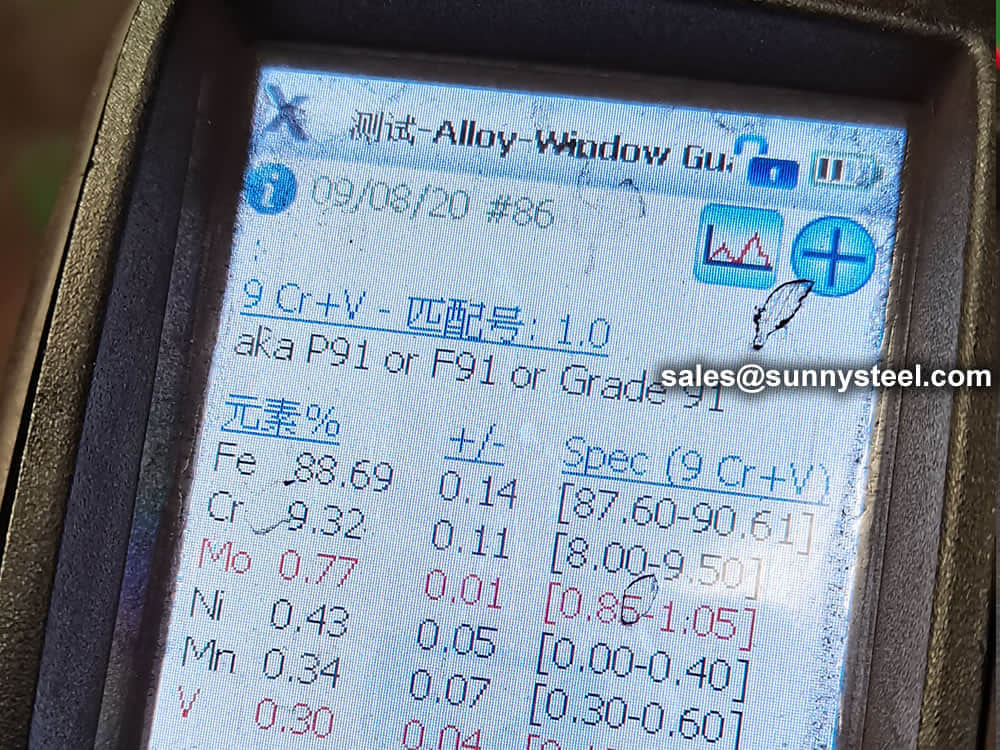

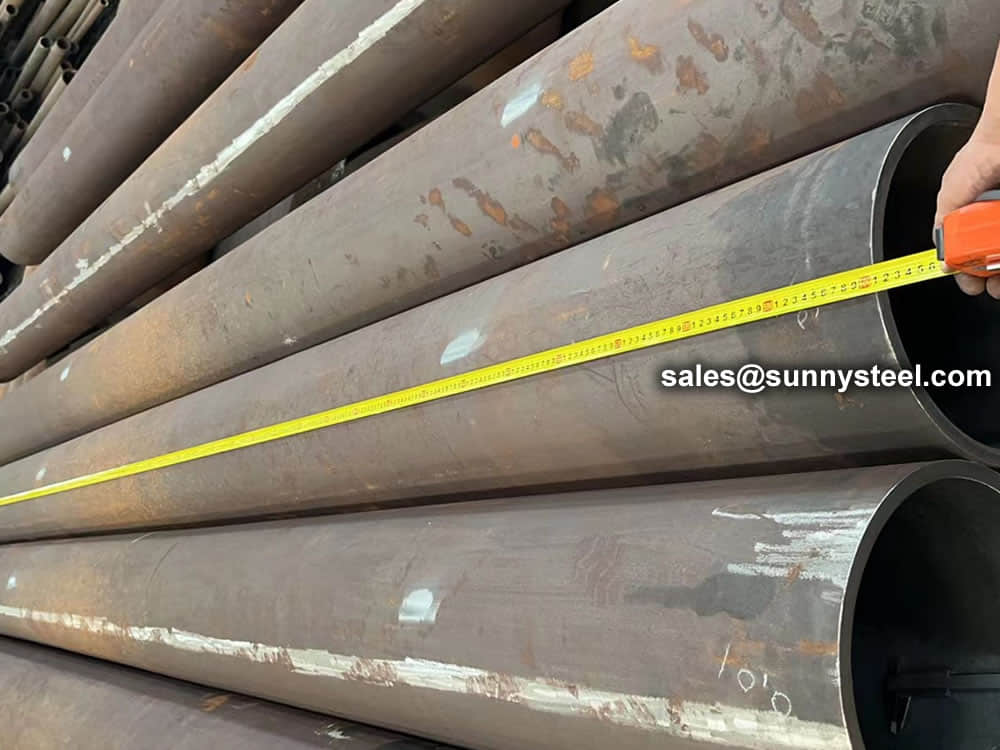
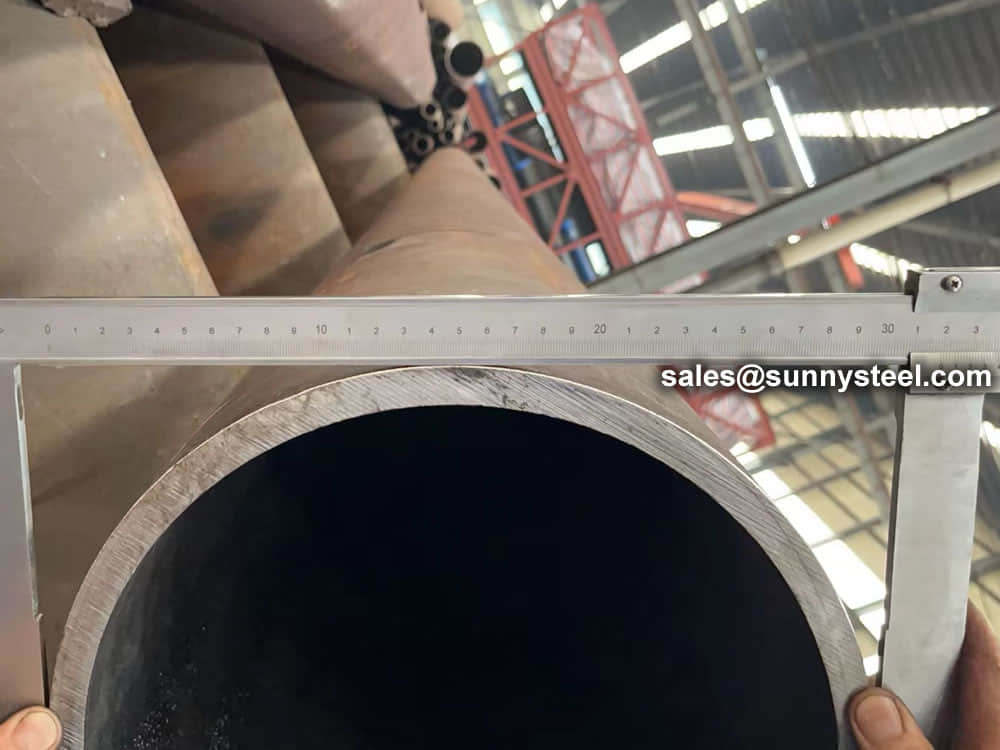
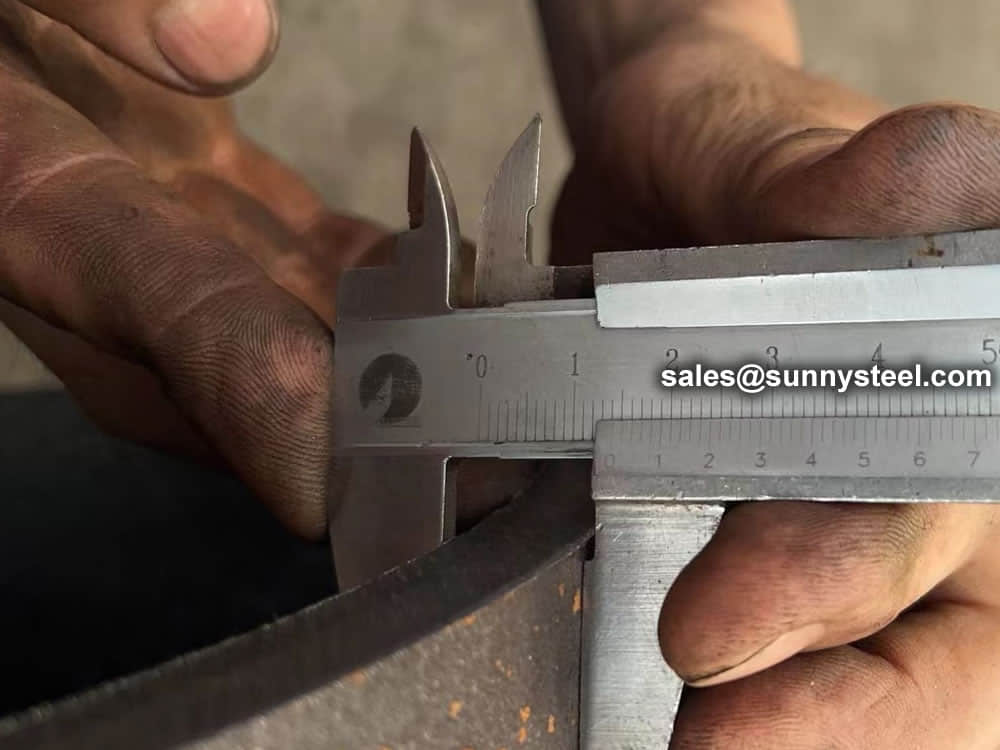
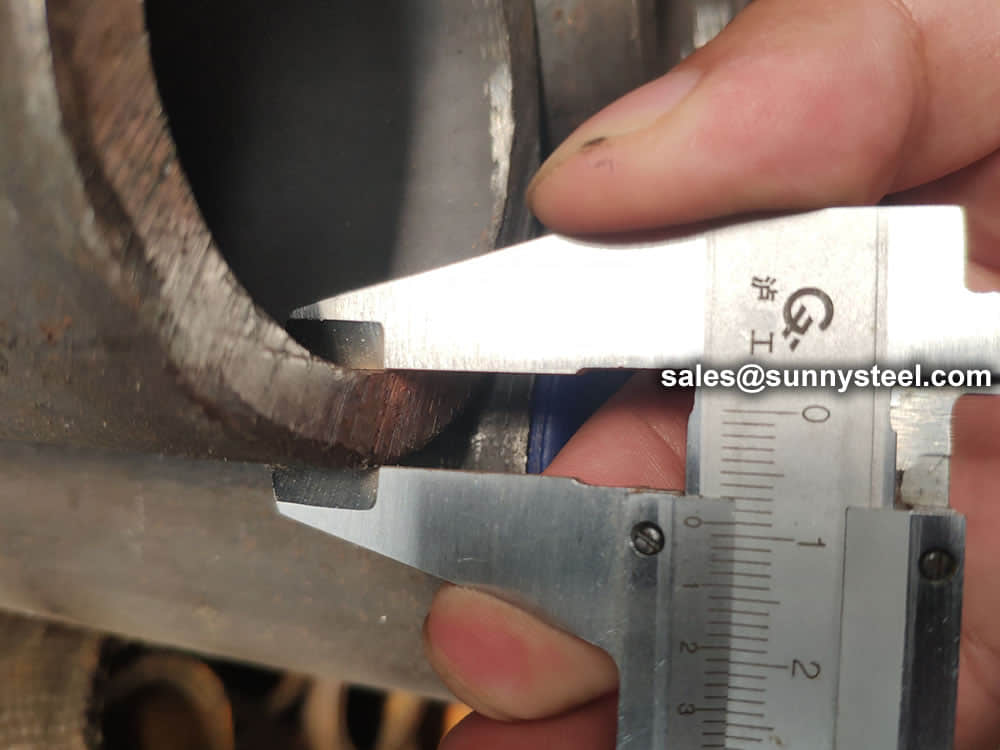
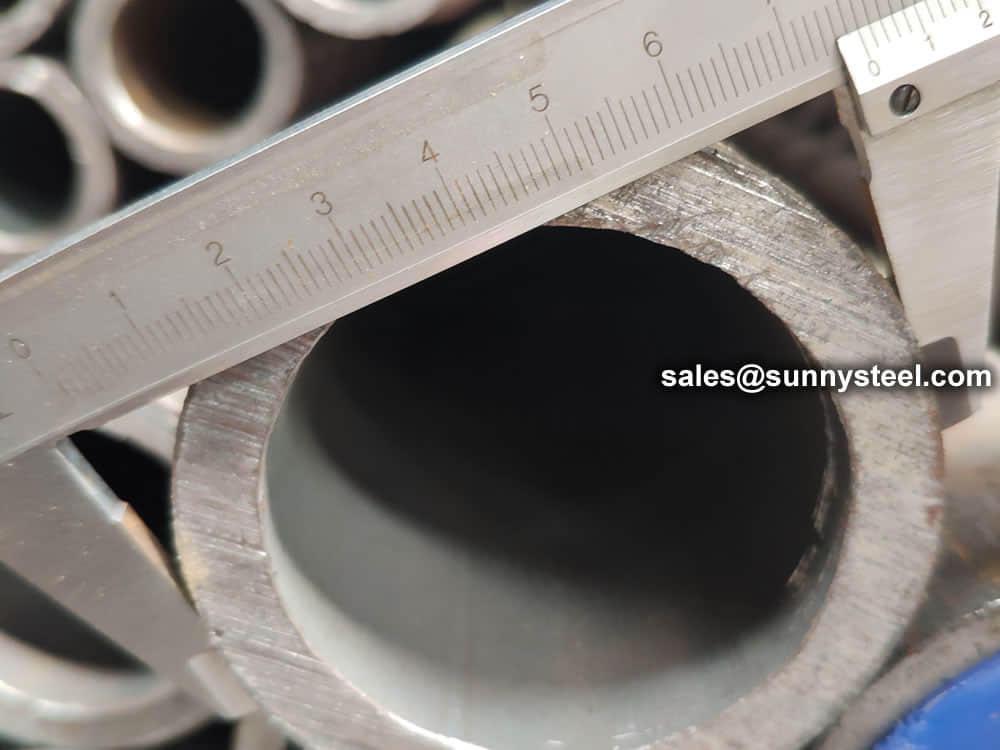
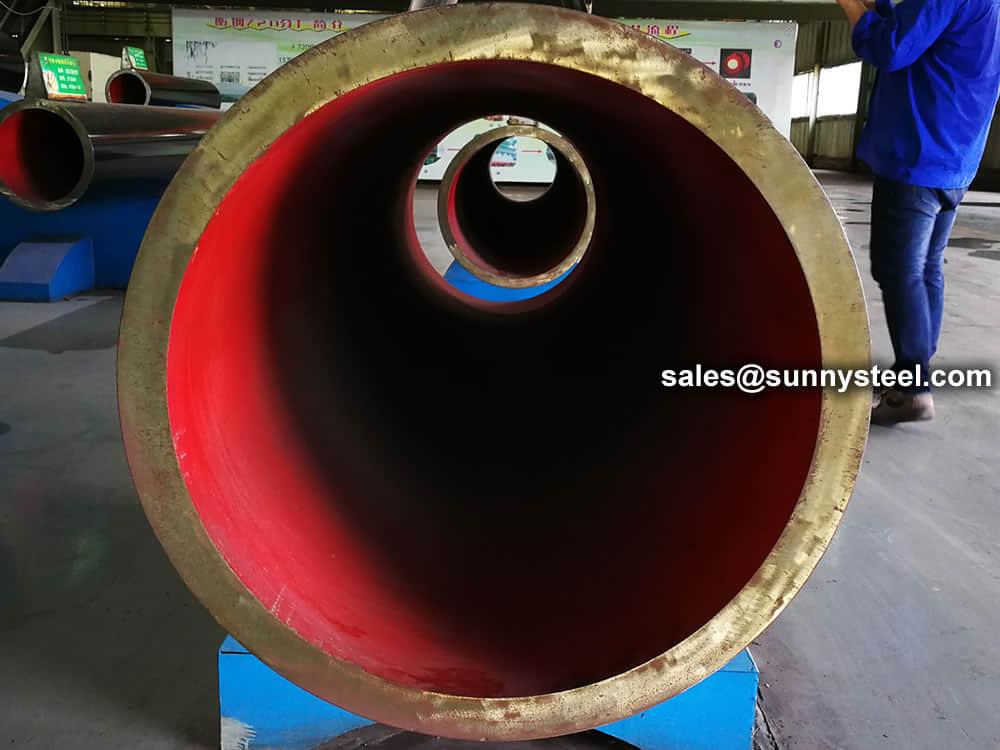
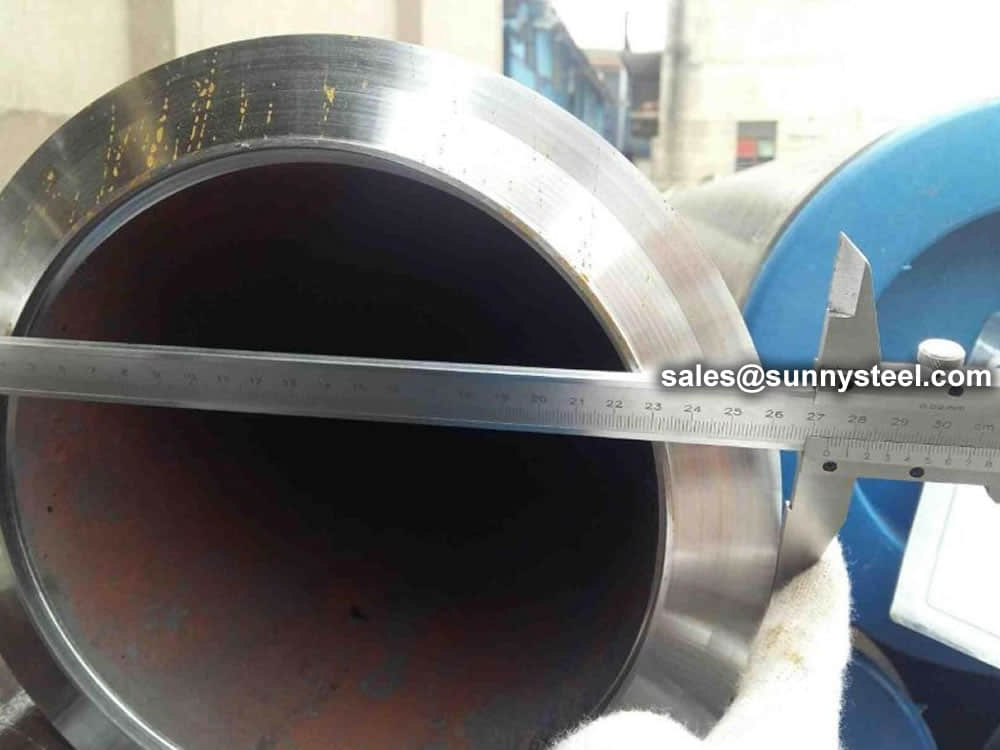
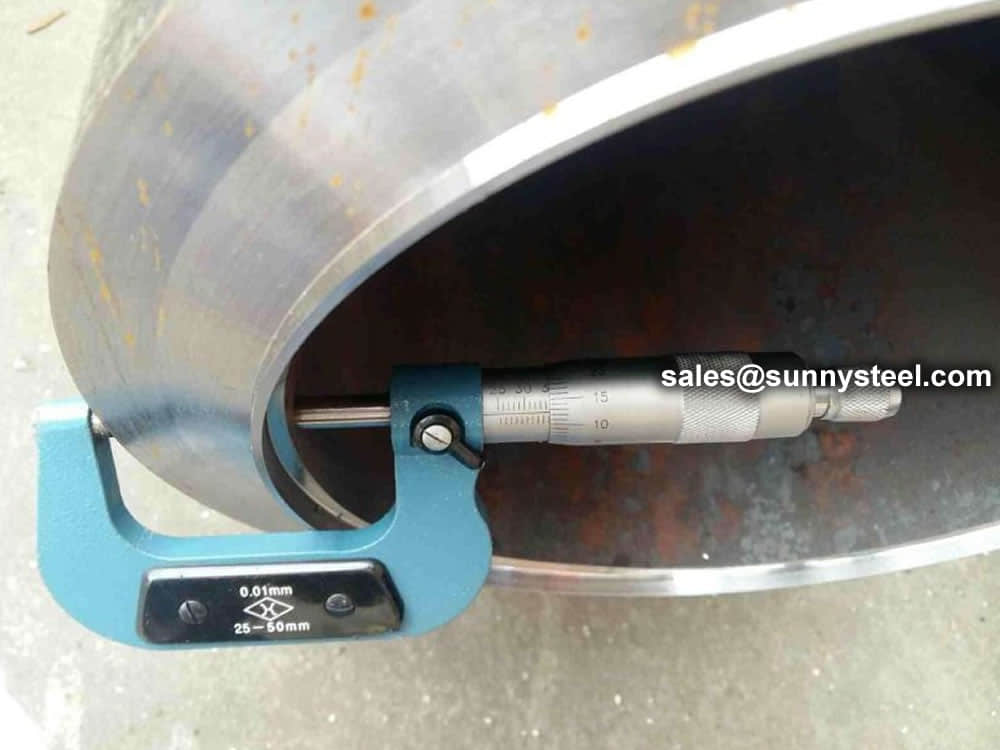
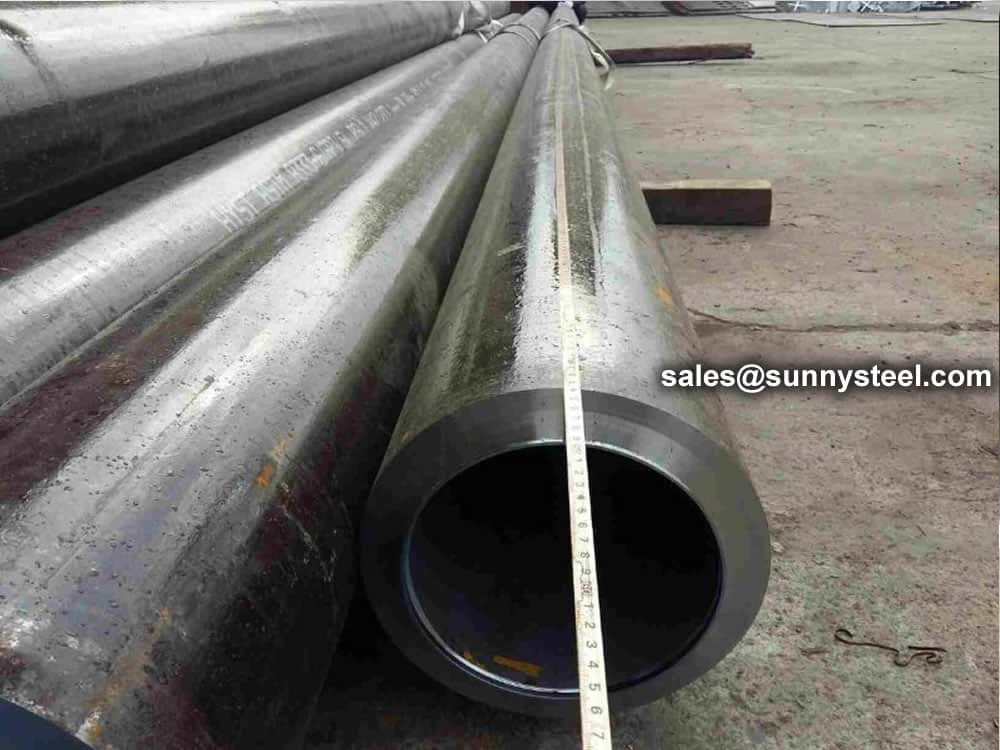
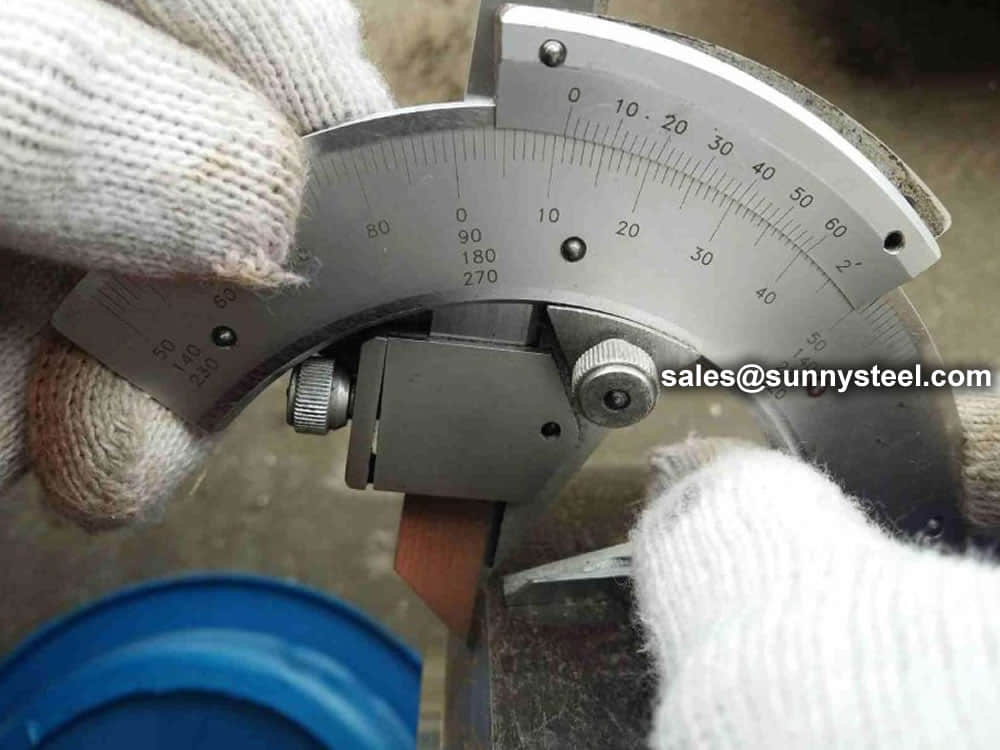
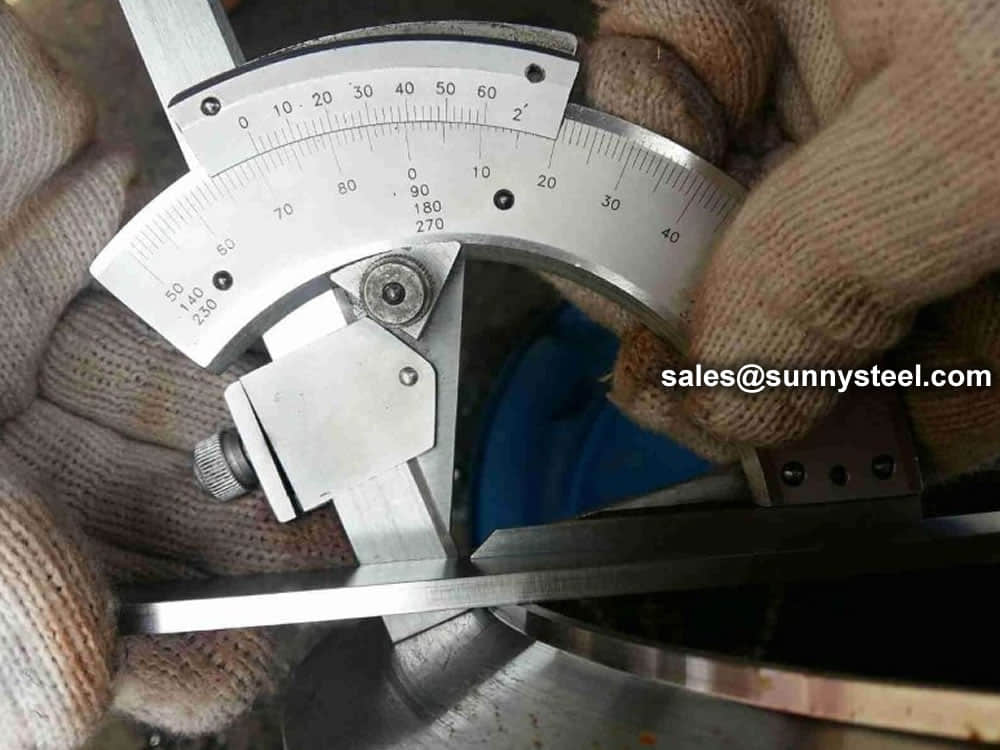
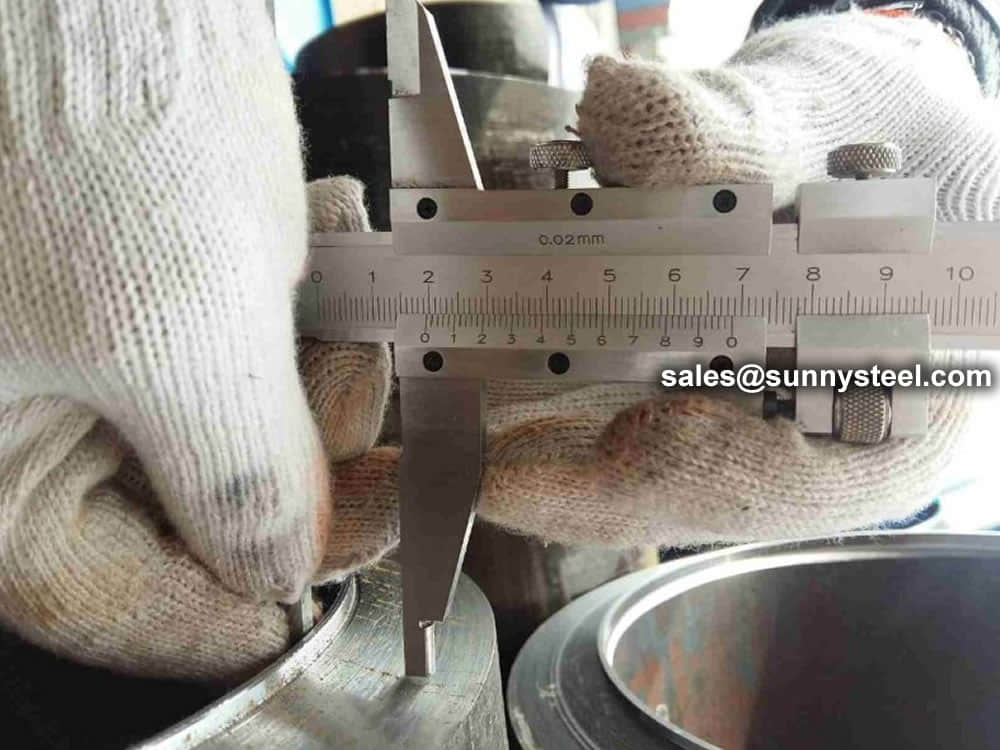
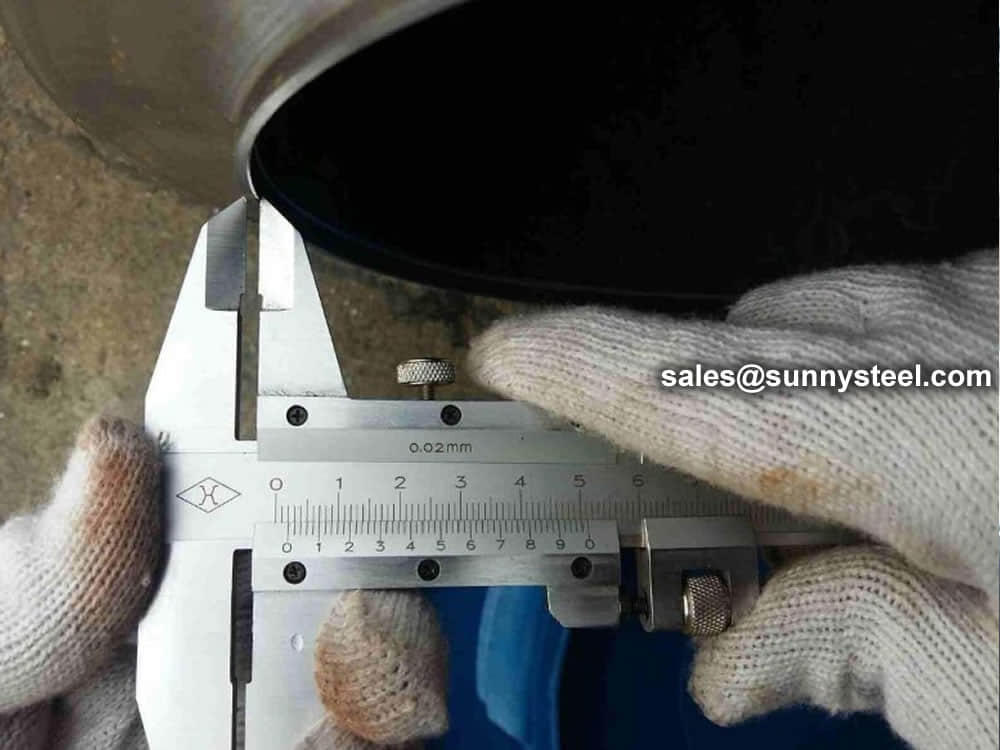
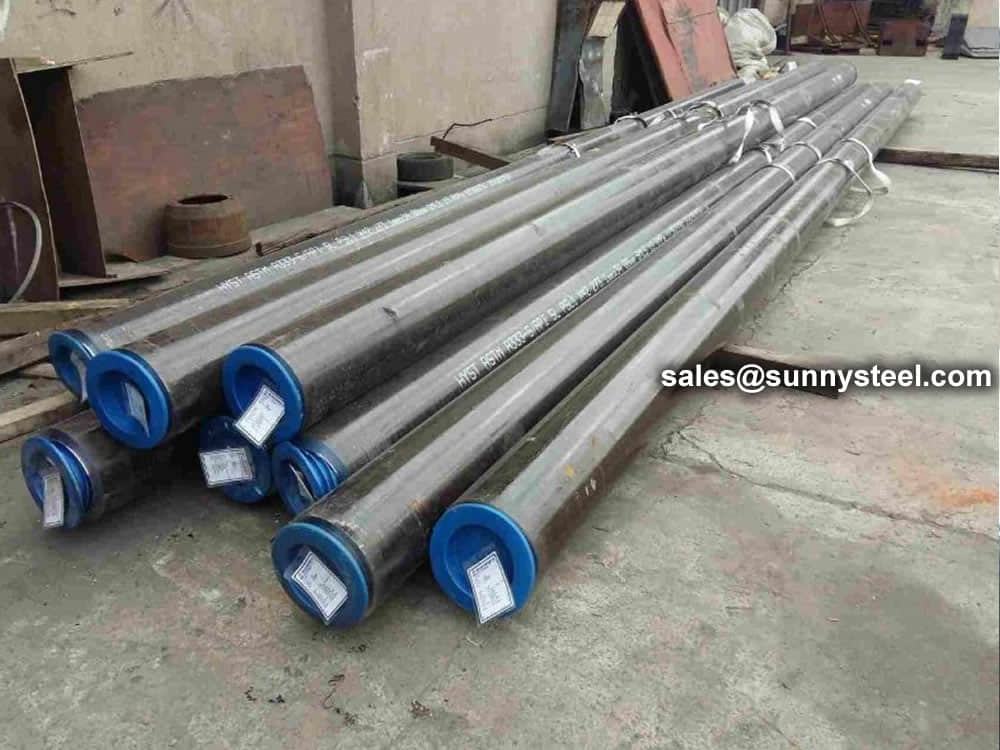
Steel pipe delivery status(condition): cold / hard (BK), cold / soft (BKW), after cold stress relief annealing (BKS), annealing (GBK), normalized (NBK).
| Term | Symbol | Explanation |
|---|---|---|
| Cold-finished/hard (cold-finished as-drawn) | BK | No heat treatment after the last cold-forming process. The tubes therefore have only low deformability. |
| Cold-finished/soft (lightly cold-worked) | BKW | After the last heat treatment there is a light finishing pass (cold drawing) With proper subsequent processing, the tube can be cold-formed (e.g. bent, expanded) within certain limits. |
| Annealed | GBK | After the final cold-forming process the tubes are annealed in a controlled atmosphere or under vacuum. |
| Normalized | NBK | The tubes are annealed above the upper transformation point in a controlled atmosphere or under vacuum. |
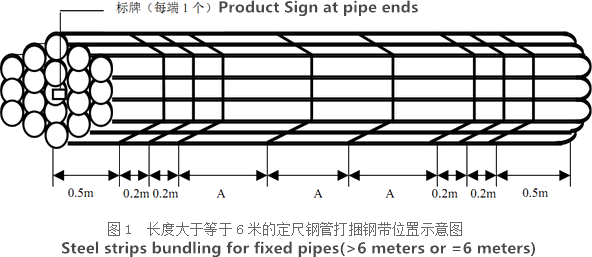
The general cold strip mills, volume should go through continuous annealing (CAPL unit) to eliminate cold hardening and rolling stress, or batch annealing reach the mechanical properties of the corresponding standard specifies. Cold rolled steel surface quality, appearance, dimensional accuracy better than hot-rolled plate, and right-rolled thin product thickness is about 0.18mm, so the majority of users favor.
Cold rolled steel coil substrate products deep processing of high value-added products. Such as electro-galvanized, hot dip galvanized, electro-galvanized fingerprint resistant, painted steel roll damping composite steel, PVC laminating steel plates, etc., so that the excellent quality of these products has a beautiful, high resistance to corrosion, has been widely used.
Cold rolled steel coil finishing after annealing, cut the head, tail, trimming, flattening, smooth, heavy volume, or longitudinal clipboard. Cold-rolled products are widely used in automobile manufacturing, household electrical appliances, instruments, switches, buildings, office furniture and other industries. Steel plate strapping package weight of 3 to 5 tons. Flat sub-volume typically 3 to 10 tons / volume. Coil diameter 6m.
Bare packing/bundle packing/crate packing/wooden protection at the both sides of tubes and suitably protected for sea-worthly delivery or as requested.
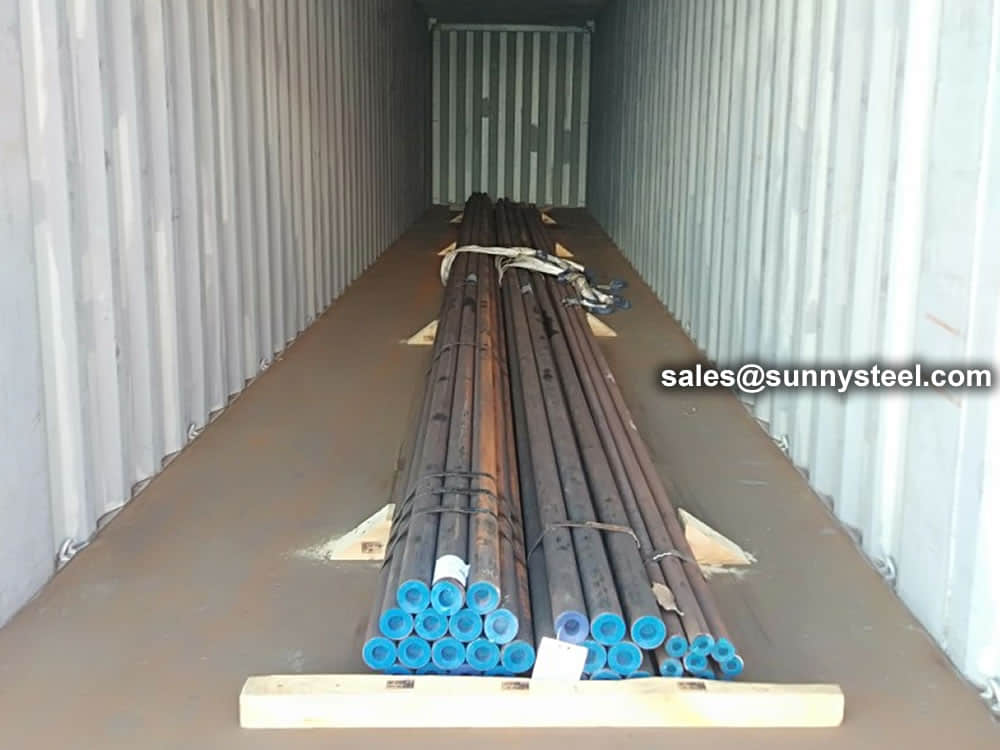
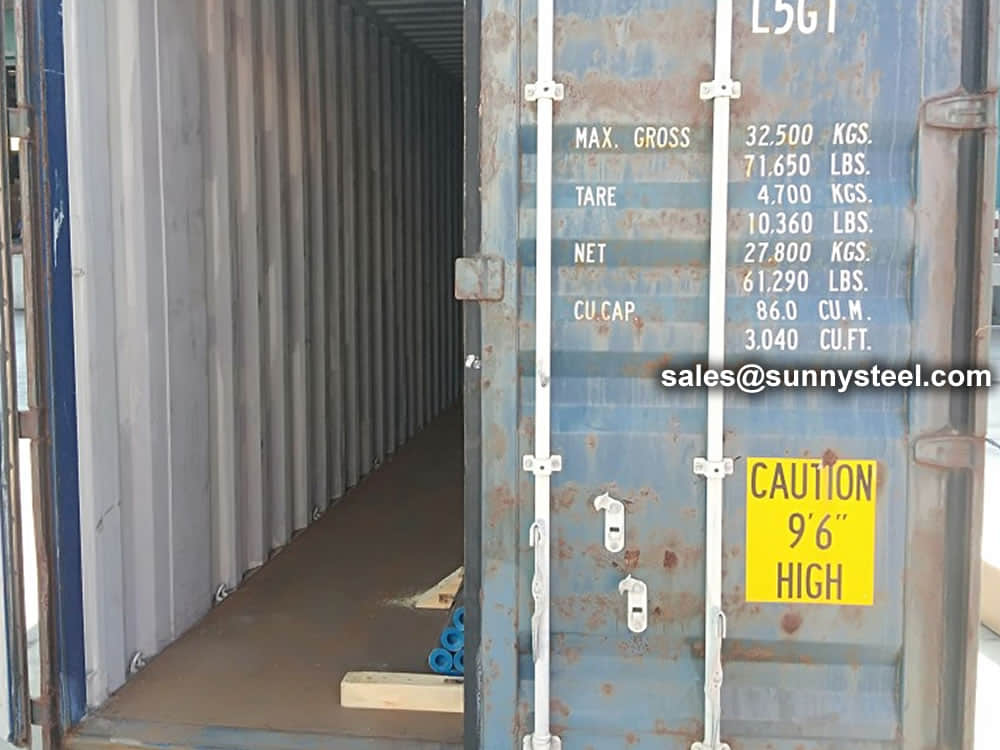
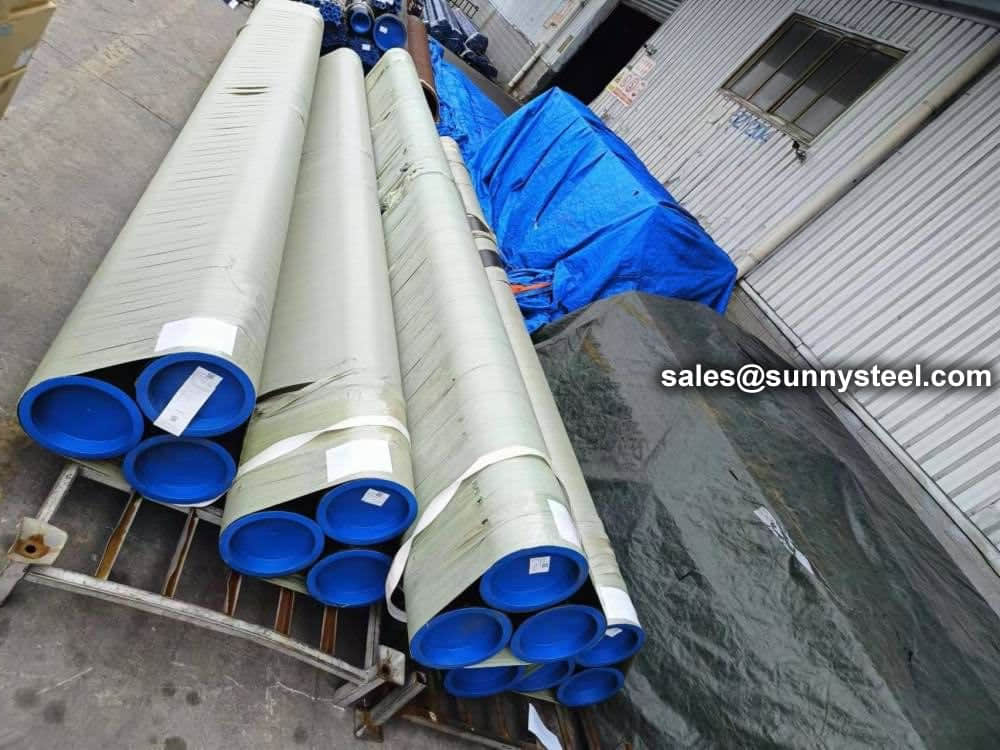
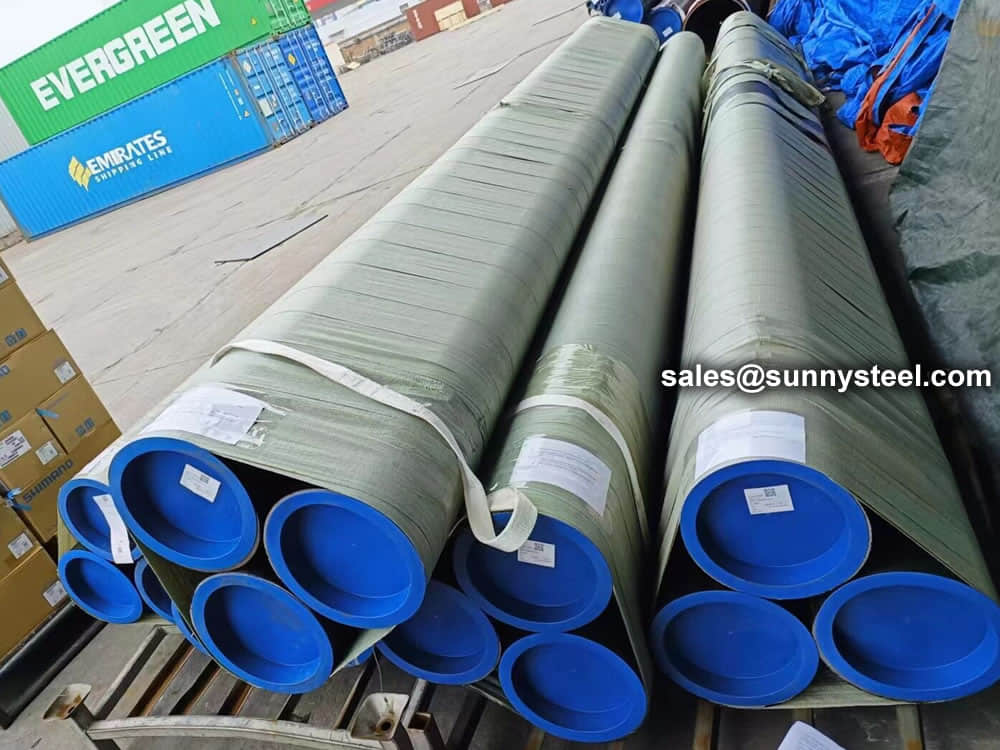
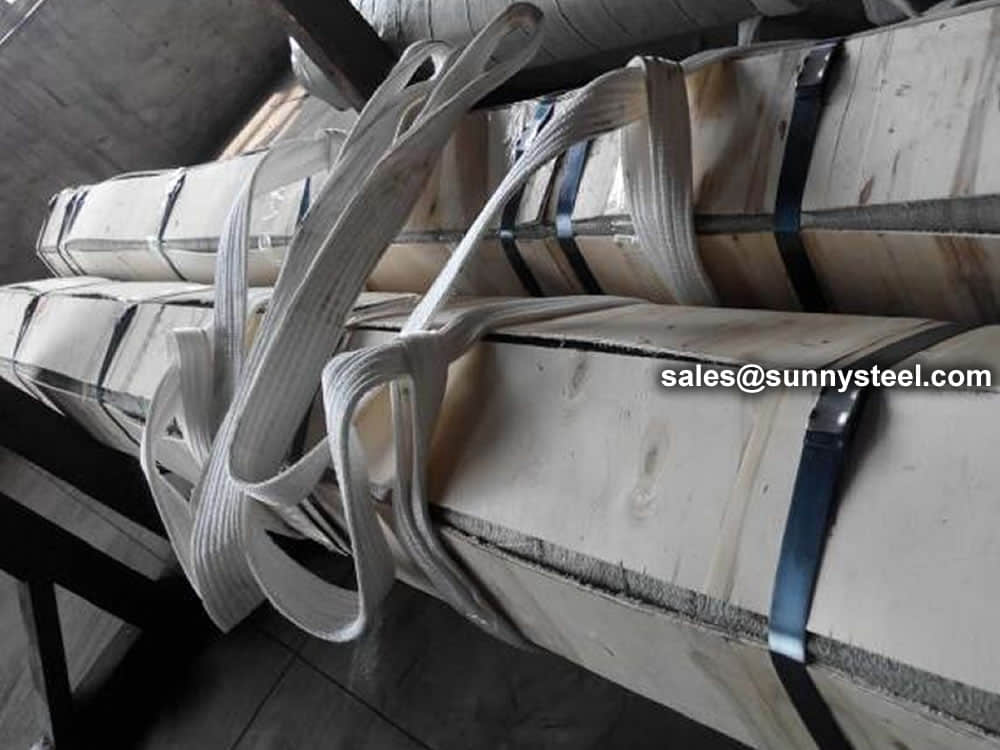
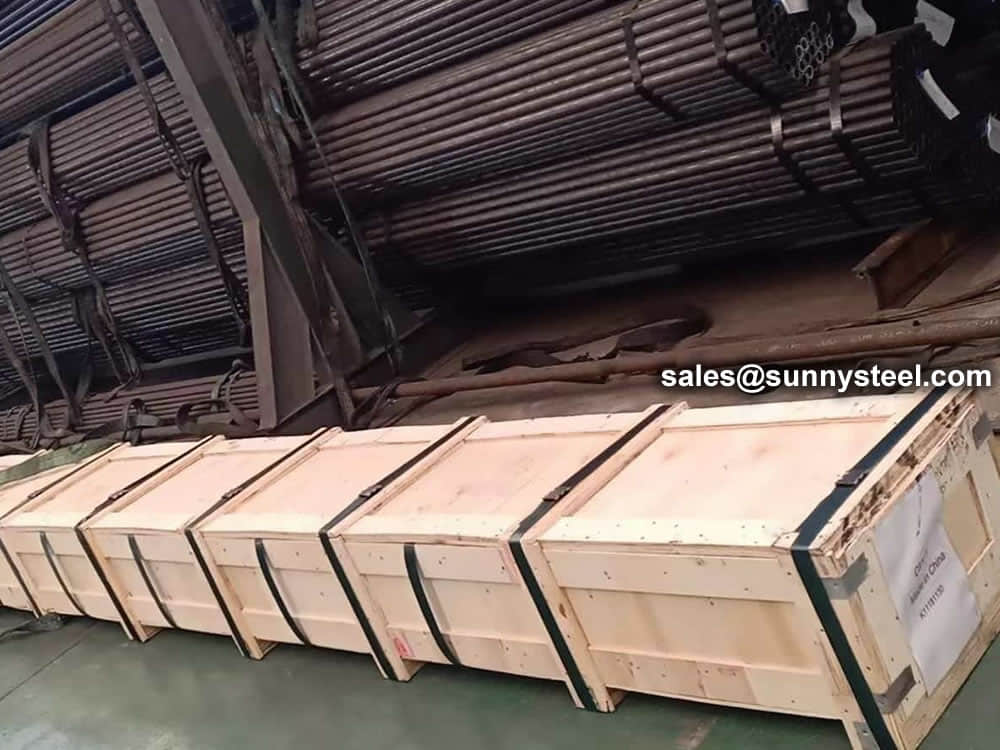
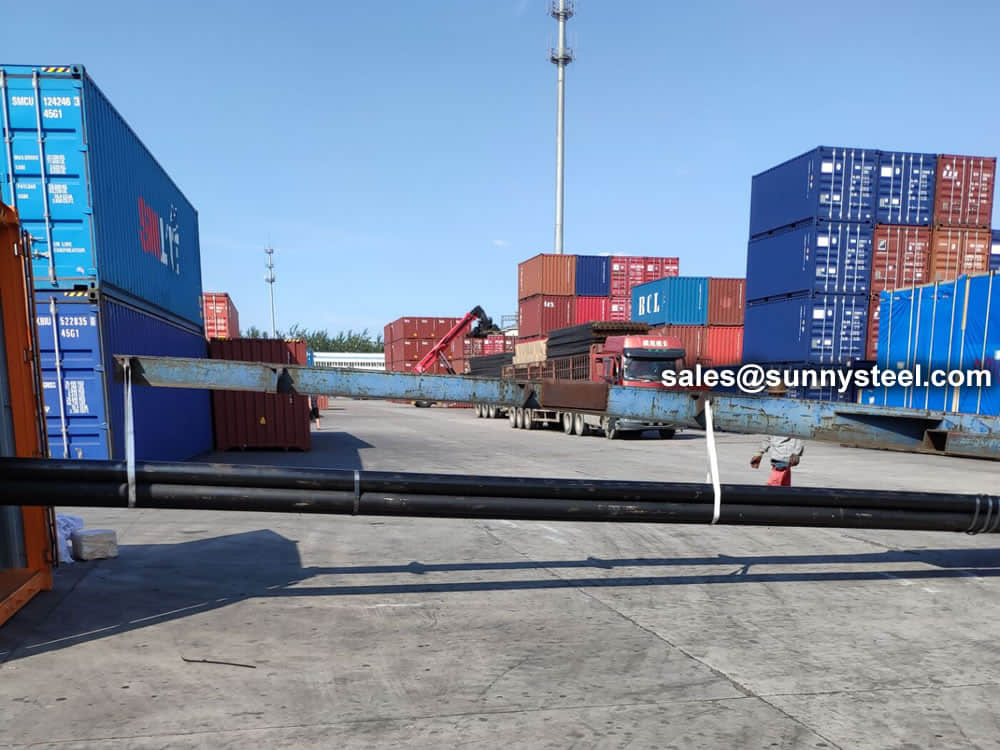
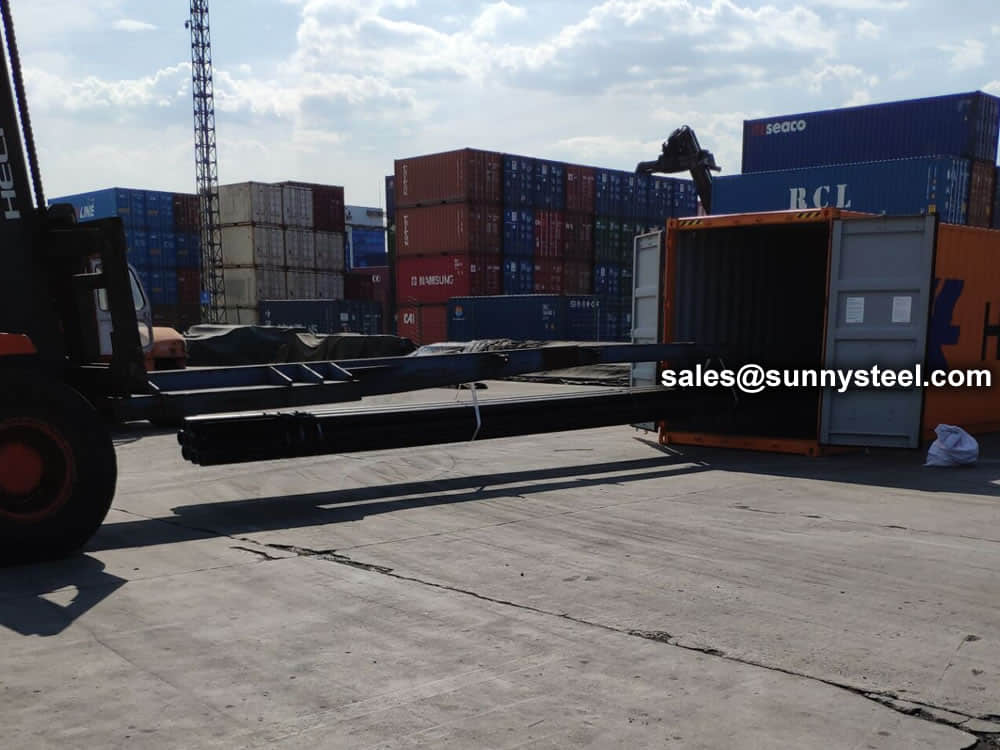
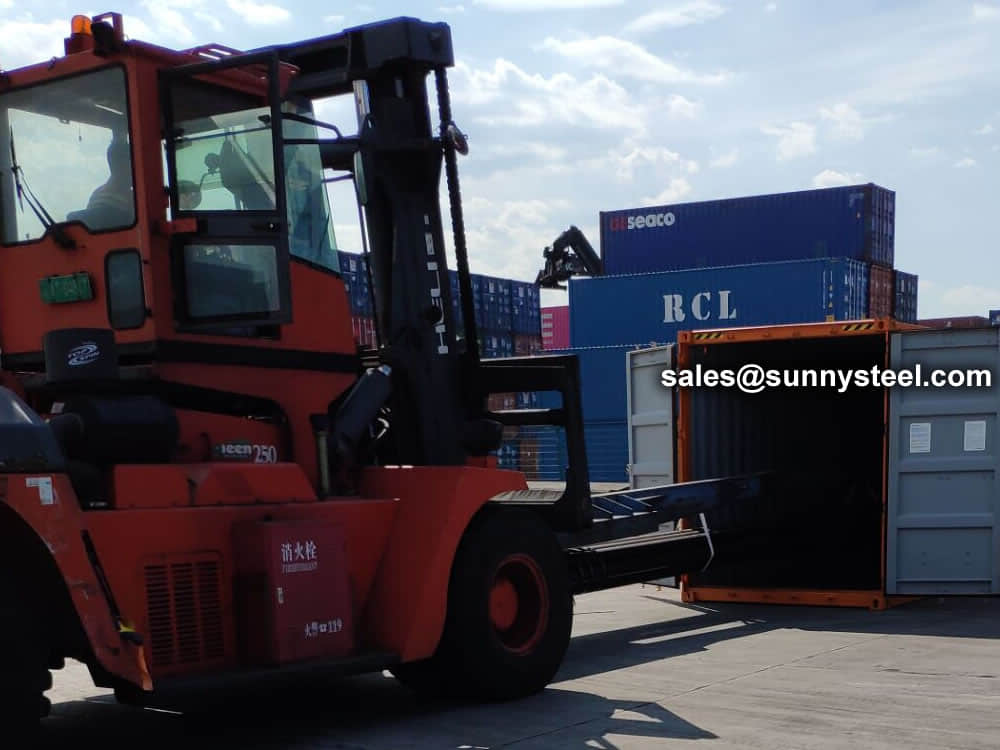
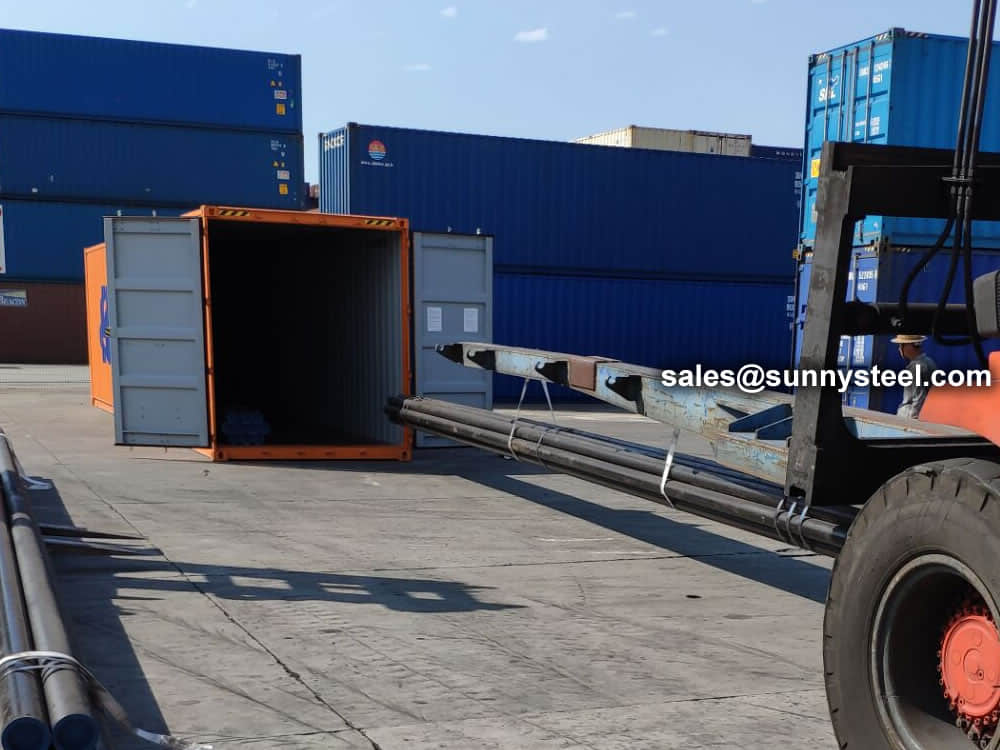
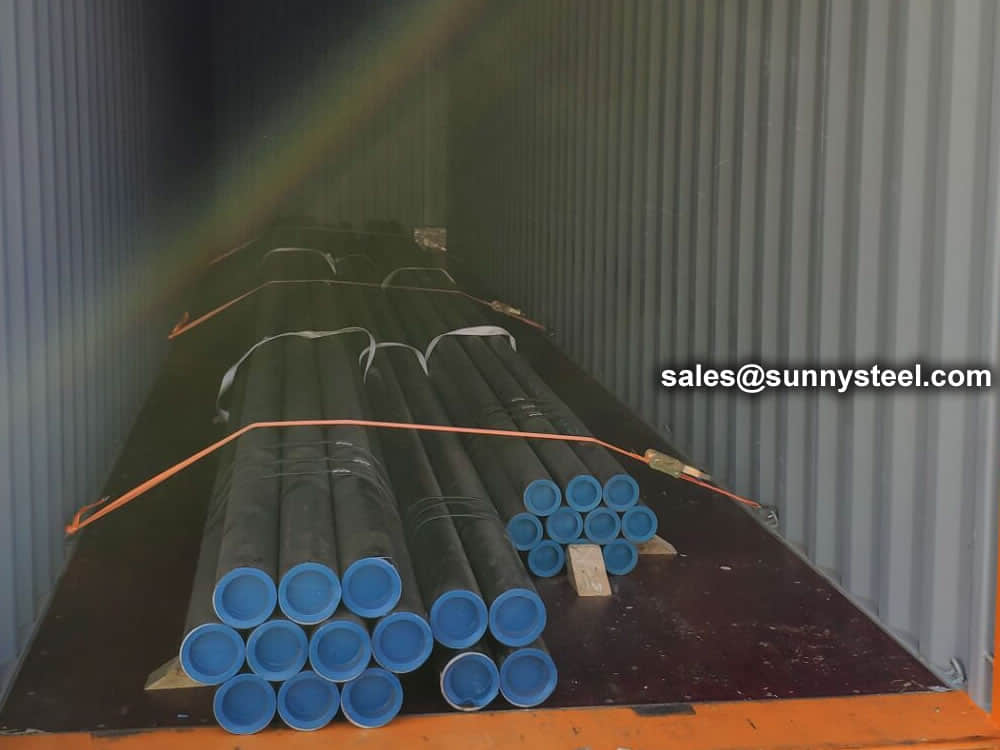
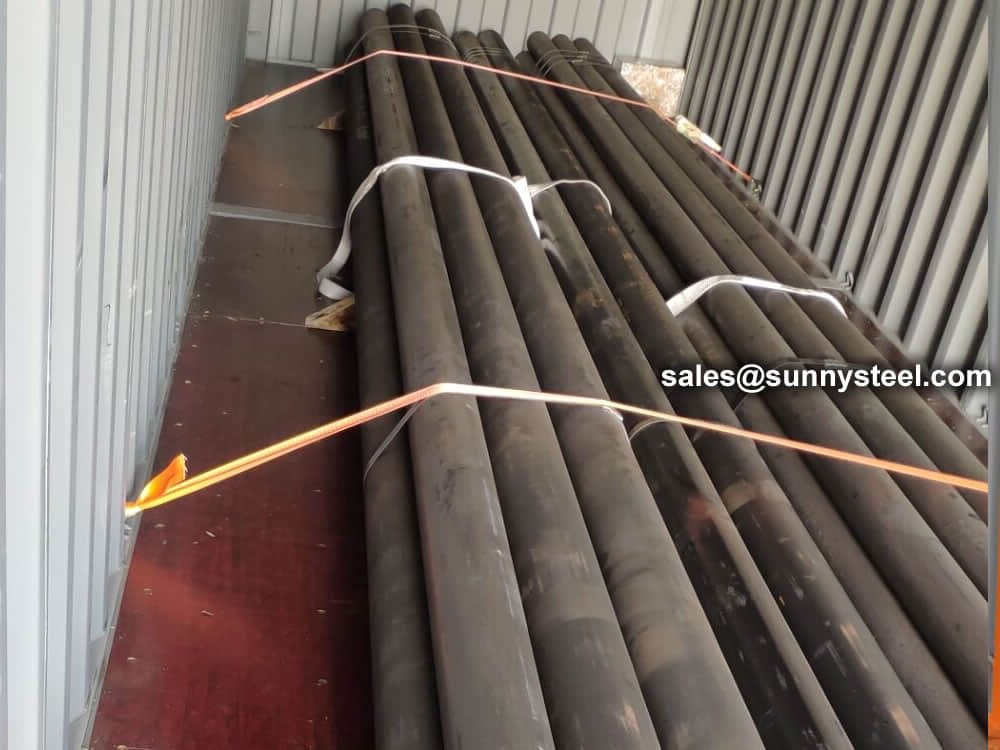
There are probably hundreds of different methods for packing a pipe, and most of them have merit, but there are two principles that are vital for any method to work prevent rusting and Sea transportation security.
Our packing can meet any needs of the customers.
Commonly used alloying elements and their effects are listed in the table given below.
| Alloying Elements | Effect on the Properties |
|---|---|
| Chromium | Increases Resistance to corrosion and oxidation. Increases hardenability and wear resistance. Increases high temperature strength. |
| Nickel | Increases hardenability. Improves toughness. Increases impact strength at low temperatures. |
| Molybdenum | Increases hardenability, high temperature hardness, and wear resistance. Enhances the effects of other alloying elements. Eliminate temper brittleness in steels. Increases high temperature strength. |
| Manganese | Increases hardenability. Combines with sulfur to reduce its adverse effects. |
| Vanadium | Increases hardenability, high temperature hardness, and wear resistance. Improves fatigue resistance. |
| Titanium | Strongest carbide former. Added to stainless steel to prevent precipitation of chromium carbide. |
| Silicon | Removes oxygen in steel making. Improves toughness. Increases hardness ability |
| Boron | Increases hardenability. Produces fine grain size. |
| Aluminum | Forms nitride in nitriding steels. Produces fine grain size in casting. Removes oxygen in steel melting. |
| Cobalt | Increases heat and wear resistance. |
| Tungsten | Increases hardness at elevated temperatures. Refines grain size. |

When you partner with Sunny Steel, you can stop worrying about meeting deadlines thanks to our responsive and timely service. You'll also say goodbye to unnecessary shopping around. Instead, you'll get white glove service from an expert who understands your needs and can get you the materials you need quickly.
